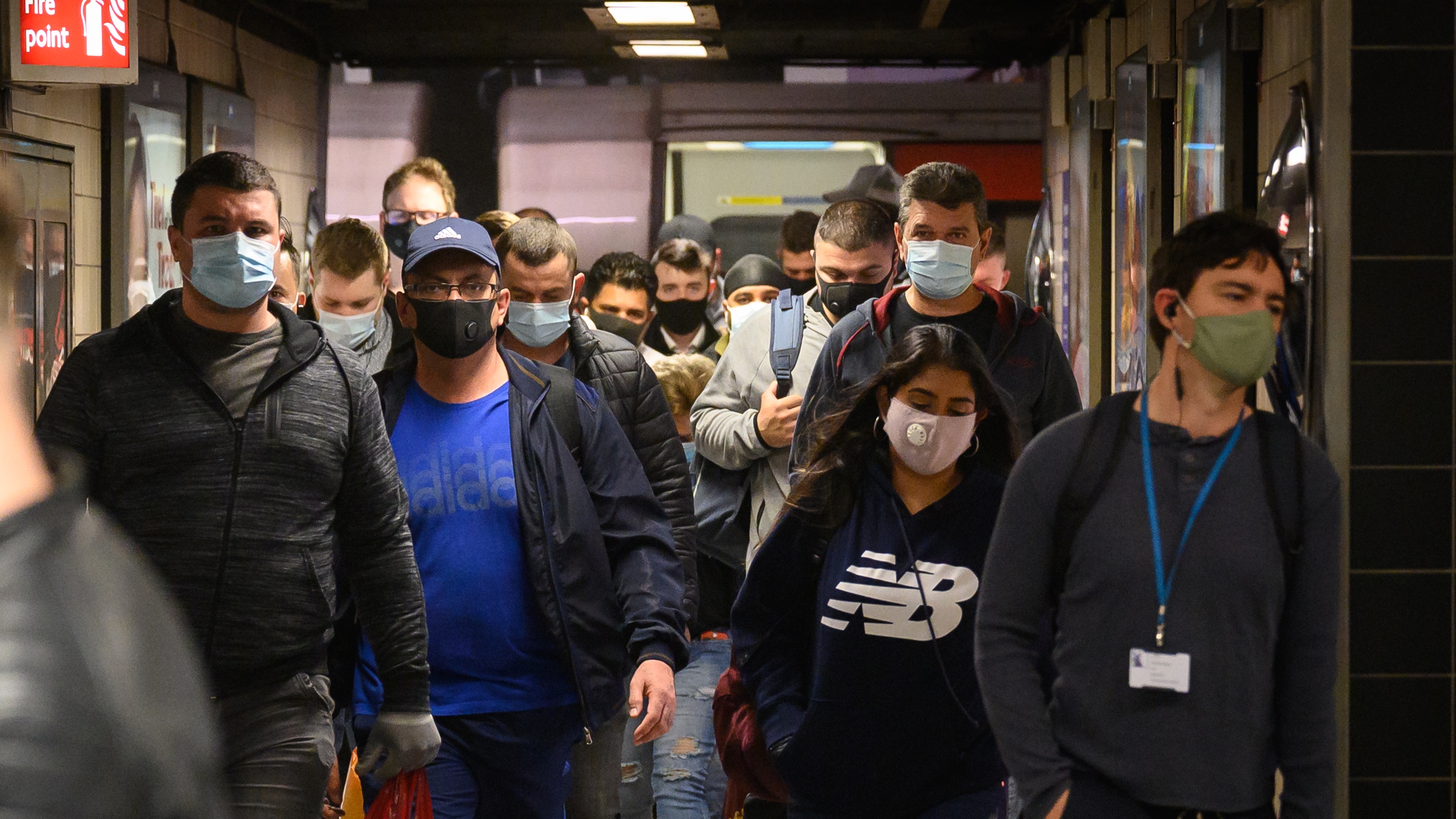Flu cases drop to zero as Covid measures cut transmission
But experts fear drop in immunity may pave way for major influenza epidemic next winter

A free daily email with the biggest news stories of the day – and the best features from TheWeek.com
You are now subscribed
Your newsletter sign-up was successful
Not a single case of influenza have been recorded in England for the past seven weeks - but the country may pay for the lull with more severe outbreaks next winter, scientists are warning.
Public Health England flu expert Dr Vanessa Saliba told The Independent that the current record-low flu infection rates are “likely due to changes in our behaviour, such as social distancing, face coverings and hand washing, as well as the reduction in international travel” during the Covid-19 pandemic.
She also credited increased uptake in the flu vaccine, saying this season’s immunisation programme is on track to be “the most successful ever”.
The Week
Escape your echo chamber. Get the facts behind the news, plus analysis from multiple perspectives.

Sign up for The Week's Free Newsletters
From our morning news briefing to a weekly Good News Newsletter, get the best of The Week delivered directly to your inbox.
From our morning news briefing to a weekly Good News Newsletter, get the best of The Week delivered directly to your inbox.
Along with Covid measures, some experts believe that another “possible explanation” for the massive drop in flu cases is that the coronavirus “has essentially muscled aside” other bugs that are more common in autumn and winter, according to the Associated Press. Although “scientists don’t fully understand the mechanism” behind this process, they say it would “be consistent with patterns seen when certain flu strains predominate over others”.
Whatever the explanation, flu has also “virtually disappeared” in the US, the news agency reports. Lynnette Brammer of the US Centers for Disease Control and Prevention said that nationally, “this is the lowest flu season we’ve had on record”.
Other countries including China, South Africa and Australia have recorded unusually low levels of infections too.
However, scientists fear that falling immunity levels to flu - normally boosted by seasonal circulation of the virus - may result in a “dramatic resurgence” in cases further down the line, The Telegraph reports.
A free daily email with the biggest news stories of the day – and the best features from TheWeek.com
“If I had to gamble on it then I would guess that we are likely to get a more severe epidemic in the coming winter - assuming restrictions are fully lifted by then,” said John Edmunds of the London School of Hygiene and Tropical Medicine.
The current low infection rates also “makes predicting which strain will hit us next and - crucially - deciding which vaccine to produce much more difficult”, adds the paper.
And “similarly high levels” of other viruses “might also be expected” after Covid restrictions are lifted, Edmunds said. “The combination could well mean that winter pressures on the NHS might be particularly bad next year,” he warned.
Chas Newkey-Burden has been part of The Week Digital team for more than a decade and a journalist for 25 years, starting out on the irreverent football weekly 90 Minutes, before moving to lifestyle magazines Loaded and Attitude. He was a columnist for The Big Issue and landed a world exclusive with David Beckham that became the weekly magazine’s bestselling issue. He now writes regularly for The Guardian, The Telegraph, The Independent, Metro, FourFourTwo and the i new site. He is also the author of a number of non-fiction books.
-
 Colbert, CBS spar over FCC and Talarico interview
Colbert, CBS spar over FCC and Talarico interviewSpeed Read The late night host said CBS pulled his interview with Democratic Texas state representative James Talarico over new FCC rules about political interviews
-
 The Week contest: AI bellyaching
The Week contest: AI bellyachingPuzzles and Quizzes
-
 Political cartoons for February 18
Political cartoons for February 18Cartoons Wednesday’s political cartoons include the DOW, human replacement, and more
-
 A Nipah virus outbreak in India has brought back Covid-era surveillance
A Nipah virus outbreak in India has brought back Covid-era surveillanceUnder the radar The disease can spread through animals and humans
-
 How dangerous is the ‘K’ strain super-flu?
How dangerous is the ‘K’ strain super-flu?The Explainer Surge in cases of new variant H3N2 flu in UK and around the world
-
 This flu season could be worse than usual
This flu season could be worse than usualIn the spotlight A new subvariant is infecting several countries
-
 Covid-19 mRNA vaccines could help fight cancer
Covid-19 mRNA vaccines could help fight cancerUnder the radar They boost the immune system
-
 The new Stratus Covid strain – and why it’s on the rise
The new Stratus Covid strain – and why it’s on the riseThe Explainer ‘No evidence’ new variant is more dangerous or that vaccines won’t work against it, say UK health experts
-
 RFK Jr. vaccine panel advises restricting MMRV shot
RFK Jr. vaccine panel advises restricting MMRV shotSpeed Read The committee voted to restrict access to a childhood vaccine against chickenpox
-
 RFK Jr. scraps Covid shots for pregnant women, kids
RFK Jr. scraps Covid shots for pregnant women, kidsSpeed Read The Health Secretary announced a policy change without informing CDC officials
-
 New FDA chiefs limit Covid-19 shots to elderly, sick
New FDA chiefs limit Covid-19 shots to elderly, sickspeed read The FDA set stricter approval standards for booster shots